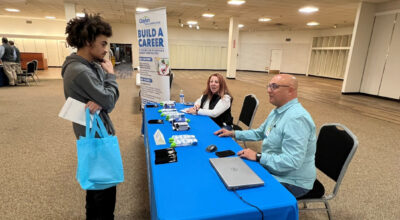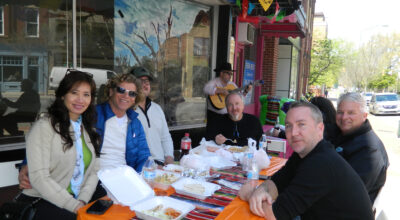Personal finance with Ralph and Al: Youíre not working if you love your job
Published 12:00 am Saturday, March 5, 2011
By Mark Wineka
mwineka@salisburypost.com
His overseas stint in the U.S. Army finished, Ralph Ketner came back to the States and had 10 different jobs over three years.
ěI found nine things I didnít like to do,î Ketner said.
A whiz with numbers, Ketner held jobs with companies and agencies such as Cannon Mills, Central Motor Lines, the Army Exchange, a Philadelphia appraisal company, the Internal Revenue Service and the State Department of Revenue.
The jobs took him coast to coast until he finally settled in with the grocery business, first at his brother Glennís Salisbury warehouse. His role as one of Food Lionís co-founders would spring from this start.
Ketnerís advice to Catawba College students taking the personal finance class with him and Professor Al Carter?
ěYou never work a day in your life if you love your job,î he said.
The counsel was especially fitting on a day Robin Perry, Catawbaís new career services director, discussed developing a resume, writing a cover letter and going on job interviews.
On resumes, Perry said job hunters should keep them clear and concise ó ěas short and sweet as you can.î Recruiters have stacks of resumes on their desks, and ěwe want to make it so it wil be read ó thatís our goal,î Perry said.
She advised against efforts to make a resume stand out by printing it on non-white paper, such as green or pink. She also said resumes should be kept to one page ó two at the most.
As for the organization of as resume, Perry suggested a setup with the applicantís name, address and contact information centered at the top, followed by four main categories: education, experience, activities and honors and skills.
Perry said 75 percent of hiring managers prefer work experiences (including volunteer jobs and internships) listed in chronological order, with the most recent jobs first.
With each job listed, the applicant should provide the title, the time period he worked there and bullet points providing information on what his job duties were.
ěCompanies want to know the scope of things,î Perry said.
Under ěactivities and honors,î Carter said, students should include their involvement in sports and whether they received scholarships. A potential employer is looking for evidence that an applicant has shown dedication, a competitive spirit and team and leadership capabilities, Carter said.
Perry couldnít stress enough that both a resume and cover letter accompanying the resume be mistake-free.
ěProofread this 100 times,î she said. ěIt really makes a difference.î
And for heavenís sake, she told the Ketner class, donít spell ěCatawbaî incorrectly.
Career developers are not always in agreement about whether graduating students should include their grade-point averages on resumes. Perry said if itís an outstanding GPA, then include it, but she was leery of including a GPA of less than 3.5.
The purpose of both a resume and cover letter is to be read, leading to an interview.
Perry suggested pulling out ěbuzzwordsî from an advertisement or listing for a job and incorporating them into the cover letter. It shows that the applicant is paying attention.
Perry said 86 percent of hiring managers say a cover letter is important. ěWhat you want to say in a cover letter is, ëWhy should I hire you?í î she added.
If possible, itís important, too, to address the cover letter to a specific person at the potential employer ó the person who will be deciding whether to call you in for an interview.
Perry also did not downplay the importance of knowing someone who already works for that company. Businesses often hire people based on employee recommendations, she said. A key way to network is to get an interview through someone you know, she said.
On an interview, Perry had these tips:
Dress professionally. ěYou can never overdress,î she said of any fear among males who think a suit might be too much.
Make eye contact. Have a firm handshake. Show confidence.
Do not take food or cell phones to an interview. Donít chew gum.
Donít slouch while you are sitting at an interview. Keep your back straight. Donít fidget.
Itís OK to take notes. Be attentive.
Shine your shoes.
As for references, Perry thought it is better to say they are available and provide them when asked. Make sure that you have asked the people you intend to use as references.
ěAnd, of course, you want to have people who will say good things about you,î Perry said.
Perry reiterated to students what Ketner said about the importance of finding jobs they are passionate about. If they work at things they love, the money often catches up in years to come, Perry said.
In older times, Ketner said, the mantra would be, ěFind a job you like.î But with todayís tough job market, he acknowledged, the slogan might be, ěLike the job you find.î
Catawba College students will be on spring break this coming week, meaning the next installment of this series will be March 20. Contact Mark Wineka at 704-797-4263.




